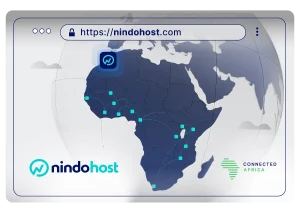If you own a pizzeria, dental office, or copy center, or if you are a general entrepreneur and manager of a local business, you should be concerned about the ranking of your website on Google and its counterparts. That said, how can you succeed in local SEO for your your business website?
You inevitably have the responsibility to give more visibility to what you sell on the web. Helping your current prospects and future customers find you on Google and its less popular counterparts, Bing and Yahoo, is undoubtedly a challenging task.
Search engine optimization (or SEO for our English-speaking friends) is not an exact science, of course. But, it's an exercise you can't afford to miss! Properly done SEO is costly and quite competitive. As a result, small businesses with limited budgets don't find it enjoyable.
Succeeding in local SEO for your business website: It's possible!
Local businesses have an advantage when it comes to SEO. You don't have to compete with all the businesses in your industry nationwide. Someone in Rabat who wants a pizza doesn't care about pizza delivery places in Tanger, and Google knows this. All you need to do is beat your competitors in your immediate geographic area.
However, this doesn't mean that succeeding in local SEO for your business website is an easy task. You still need to compete with other local businesses, which means that optimizing your website still requires an investment.
Today, we offer seven advanced measures that you, as a Moroccan entrepreneur, can implement to better succeed in local SEO for your business website.
1. Perform an SEO audit.
Before you dismiss this step as unnecessary and costly, let us tell you one thing: Regularly conducting SEO audits is a good practice. Assessing your current situation provides you with the information you need to improve your strategy in the future and succeed in local SEO for your business website.
Start by analyzing your current website.
- How are people currently finding your website?
- Which pages of your website generate the most traffic?
- How often do visitors to your website take the desired actions, such as making a purchase, signing up for your mailing list, or visiting your store?
- What keywords are you currently ranking for?
An analysis will help you better understand what your audience responds to. If you can identify trends in the keywords you rank for, and which types of pages and content most often lead to conversions, you can update your SEO strategy to make your efforts go further.
2. Ensure your website works well on mobile devices.
Smartphones and tablets make up a significant portion of the devices people use to interact with the web. And local business websites essentially cater to visitors who are looking for nearby options while on the go, which is why having a mobile-responsive website is crucial.
Everyone knows it today: Google favors websites that work well on mobile devices.
It goes without saying, a website that is difficult to navigate on a smartphone quickly becomes frustrating for visitors and ultimately loses them as customers.
Google offers a user-friendly mobile test in which you can enter your URL to check if your website works well on mobile devices. This tool even allows you to get suggestions for improving the mobile experience to succeed in local SEO for your business website.
3. Optimize your Google My Business listing.
Google's algorithm is designed to recognize when a keyword has local intent. This is SEO speak for keywords where the person searching is interested in finding results located nearby. For these keywords, the search engine results page (SERP) prominently features a map and a local pack of three nearby businesses.
One of the main factors used by Google to determine the results to display in the local pack is the information contained in your Google My Business listing. It is essential for local SEO to ensure that your Google My Business listing is claimed, complete, and optimized.
To do this:
- Make sure to select the most relevant category for your listing.
- Fill in all the information requested by Google.
- Add high quality images.
- Include a phone number with a local area code.
Having a complete Google My Business listing isn't just helpful for succeeding in local SEO for your business website. It also allows potential customers to get more information about the businesses in their area. If a customer sees your address and business hours on the SERP, it can help them make a quicker decision about whether you're the right business for them.
4. Organize your local NAP citations.
NAP stands for Name, Address and Phone Number. It's the acronym that search engine optimization professionals use to describe all the business listings on the web that contain these three pieces of information.
Ensure that your business is listed in as many places as possible. Consider customer review sites, local directories like the Chamber of Commerce, government websites, etc. But you'll also need to make sure your information is consistent everywhere so that Google can correctly link them.

Find a consistent spelling for your business (e.g., Av Med V vs. Avenue Med V – stick to one) and choose a local phone number to include in each citation. Make an effort to add your website wherever it is not yet listed, and update listings that are outdated or don't match the standard information you've established.
There are local SEO tools that can make your job easier. Consider applications like White Spark, Loganix, Yext, or BrightLocal. These tools will help you identify local citations you can benefit from and can automate the process of adding and updating citations on numerous sites.
5. Get customer reviews.
SEO experts believe that online reviews are a crucial ranking factor for local businesses. According to a 2018 Moz survey of local SEO professionals, about 15% of how Google determines what to include in the local pack is due to reviews.
Since it's your customers providing the reviews and evaluations, you have no control over them. Start by making sure your products and services are exceptional. Seize every opportunity to go above and beyond and genuinely impress your customers. Succeeding in local SEO for your business website also depends on the relationship you maintain with your audience.
Don't hesitate to ask customers directly for honest feedback. You can do this in follow-up emails after a purchase, through questionnaires on your website, and more. If you let your customers know that their opinion matters to you, they will be more likely to take a few minutes to provide feedback.
6. Create content focused on local questions.
Content is an essential part of any good SEO strategy. It allows you to target more relevant keywords and gives other websites more reasons to link to you. Additionally, regularly updating your website with fresh content signals to Google that your site is up-to-date.
All of this contributes to improved SEO and allows you to succeed in local SEO for your business website. As a local business, you can make your content strategy go further by identifying local keywords to focus on.
A local delivery business could cover topics such as "fast pizza delivery in Tanger" or "the fastest pizzas in Tanger."
7. Turn your local community into a human social network.
The most challenging part of SEO is link building, and backlinks are a significant factor in how Google's algorithm determines the value of your website. Although there are many link-building tactics to try, the websites most likely to link to yours are those managed by people who know you and your brand.
Building relationships with people in your community is a smart tactic for earning links. However, it's a slow process. Attending a single networking event and hoping for a large number of links is not enough!
By getting to know the owners of other local businesses, bloggers, local influencers and journalists, as well as people involved in local non-profit associations, you will gain contacts that will help you better promote your business within the local community.
Over time, this will allow a greater number of businesses to link to you organically. And any link-building campaign that involves reaching out to other website owners will be easier and more effective. If the person you contact already knows you, they are much more likely to respond positively to your request.
Local SEO: The Magic Formula?
There is no magic formula for successful local SEO for your business website. We can already sense your disappointment, as you're used to typing your queries on Google and getting plenty of articles promising a "magic solution."
However, we will tell you what you really need to do to increase your chances of success in local SEO for your business website:
- First, ensure the quality of your products and services;
- Listen to your customers and don't hesitate to accept their evaluations and reviews: this will help you tremendously in improving your business;
- Invest more in organic SEO by choosing the right keywords that best describe you and increasing your visibility on social networks.
One last tip: Targeted and sponsored advertisements are a good approach, although expensive. However, if your product or service isn't worth it, it's better to save that budget.



